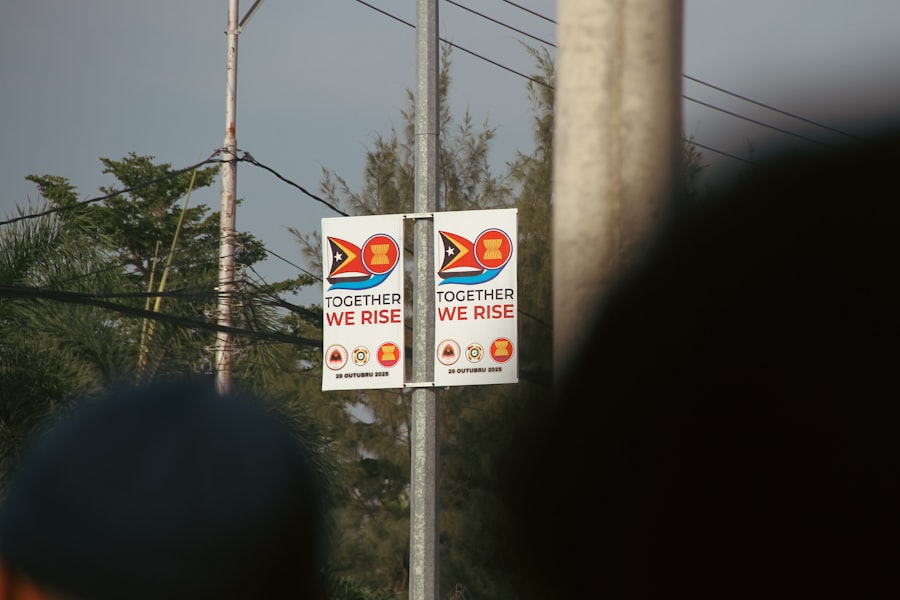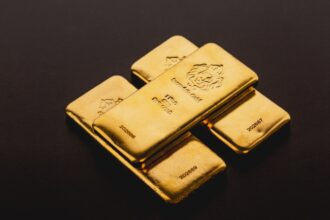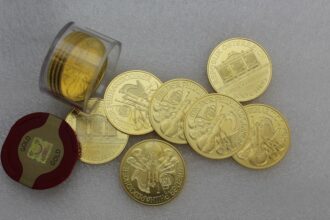African gold has long been a symbol of wealth, power, and allure, captivating the imaginations of explorers, traders, and nations alike. The continent is endowed with vast reserves of this precious metal, making it a focal point for both economic development and international interest. From the ancient kingdoms of Mali and Ghana to modern-day mining operations, gold has played a pivotal role in shaping the continent’s history and its interactions with the rest of the world.
The significance of African gold extends beyond mere economic value; it is intertwined with cultural heritage, social structures, and geopolitical dynamics. As the global demand for gold continues to rise, driven by factors such as investment, jewelry production, and technological applications, Africa’s role in the gold market becomes increasingly critical. The continent is home to some of the largest gold-producing countries, including South Africa, Ghana, and Mali.
These nations not only contribute significantly to the global supply of gold but also face unique challenges and opportunities in managing their resources. Understanding the complexities surrounding African gold is essential for grasping its impact on both local communities and the international stage.
Key Takeaways
- African gold has played a crucial role historically and continues to influence global economic and geopolitical landscapes.
- The mining and trade of African gold impact local economies but also pose significant environmental and social challenges.
- Geopolitical tensions and conflicts often arise in regions rich in gold due to competition over resources.
- Sustainable management strategies are essential to balance economic benefits with environmental protection and social stability.
- The future of African gold geopolitics depends on effective governance, international cooperation, and responsible resource utilization.
Historical significance of African gold
The historical significance of African gold can be traced back to ancient civilizations that flourished on the continent. The Kingdom of Mali, for instance, was renowned for its wealth derived from gold trade during the 14th century. Mansa Musa, its most famous ruler, is often cited as one of the richest individuals in history, largely due to the kingdom’s abundant gold resources.
This wealth facilitated not only economic prosperity but also cultural exchanges and advancements in education and architecture. The legacy of such historical figures continues to influence contemporary perceptions of African gold. Moreover, the trans-Saharan trade routes established during this period were instrumental in connecting Africa with Europe and the Middle East.
Gold became a key commodity in these exchanges, leading to increased interactions between different cultures and economies. The allure of African gold attracted European explorers and colonizers, who sought to exploit these resources for their own gain. This historical context underscores the enduring significance of gold in shaping Africa’s past and its ongoing influence on present-day geopolitics.
Geopolitical implications of African gold

The geopolitical implications of African gold are profound and multifaceted.
Countries with significant gold reserves find themselves at the center of international attention, as foreign powers seek to secure mining rights and establish partnerships.
This dynamic can lead to both beneficial investments and exploitative practices, depending on how agreements are structured and enforced. Furthermore, the strategic importance of gold extends beyond mere economic interests; it can also serve as a tool for political leverage. Nations rich in gold may wield greater influence in regional and global affairs, using their resources to negotiate favorable terms in trade agreements or international treaties.
Conversely, countries that rely heavily on imported gold may find themselves vulnerable to fluctuations in price and supply, impacting their economic stability and political autonomy.
African gold and global economic power
| Metric | Value | Unit | Notes |
|---|---|---|---|
| Africa’s Share of Global Gold Production | 20 | Percent | Approximate share of total global gold output |
| Top African Gold Producer | South Africa | Country | Historically largest gold producer in Africa |
| Gold Reserves in Africa | 50,000 | Metric Tons | Estimated total gold reserves across the continent |
| Contribution of Gold to African GDP | 5 | Percent | Average contribution of gold mining to GDP in gold-producing countries |
| Global Gold Demand Growth | 3 | Percent per year | Annual increase in global gold demand impacting African exports |
| Impact on Global Economic Power | Moderate | Qualitative | Africa’s gold resources contribute to economic leverage but are limited by infrastructure |
African gold plays a crucial role in shaping global economic power dynamics. As one of the most sought-after commodities, gold influences financial markets and investment strategies worldwide. The continent’s rich deposits contribute significantly to global supply chains, affecting everything from jewelry production to technological innovations that rely on gold components.
Consequently, fluctuations in African gold production can have ripple effects across various industries and economies. Moreover, the rise of emerging markets has further amplified the importance of African gold in the global economy. Countries like China and India have increased their demand for gold, driving prices higher and prompting investments in African mining operations.
This shift not only enhances Africa’s economic standing but also positions it as a key player in the global marketplace. However, this newfound prominence comes with challenges, as nations must navigate the complexities of foreign investment while ensuring that local communities benefit from their natural resources.
Balancing power dynamics in African gold mining
The power dynamics within African gold mining are often characterized by a delicate balance between local interests and foreign investments. On one hand, multinational corporations bring capital, technology, and expertise that can enhance production efficiency and profitability. On the other hand, there is a growing recognition of the need for equitable distribution of benefits among local communities.
Striking this balance is essential for fostering sustainable development and minimizing social tensions. Local governments play a critical role in mediating these power dynamics by establishing regulations that protect both their citizens and their natural resources. Effective governance can ensure that mining operations adhere to environmental standards and contribute to community development initiatives.
However, challenges persist due to corruption, lack of transparency, and inadequate enforcement mechanisms. Addressing these issues is vital for creating an environment where both local populations and foreign investors can thrive.
Impact of African gold on local economies
The impact of African gold on local economies is profound yet complex. In many regions, gold mining serves as a significant source of employment and income generation. It provides livelihoods for thousands of individuals who work directly in mines or in related industries such as transportation and services.
This influx of income can stimulate local economies by increasing demand for goods and services, thereby fostering economic growth. However, the benefits of gold mining are not uniformly distributed. In some cases, local communities may find themselves marginalized as profits are siphoned off by foreign corporations or corrupt officials.
This disparity can lead to social unrest and exacerbate existing inequalities. To mitigate these challenges, it is essential for governments and mining companies to engage with local communities actively, ensuring that they have a voice in decision-making processes and that they receive fair compensation for their resources.
Environmental and social implications of African gold mining
The environmental implications of African gold mining are significant and often detrimental. Mining activities can lead to deforestation, soil degradation, and water pollution, posing serious threats to local ecosystems and biodiversity. The use of toxic chemicals such as cyanide in extraction processes further exacerbates these environmental concerns, raising alarms among environmentalists and local communities alike.
Socially, the consequences of gold mining can be equally troubling. While it may create jobs and stimulate economic activity, it can also lead to displacement of communities and disruption of traditional ways of life. The influx of workers into mining areas can strain local resources such as water and housing, leading to conflicts over access and usage rights.
Addressing these environmental and social implications requires a commitment to sustainable practices that prioritize both ecological integrity and community well-being.
African gold and international trade
African gold plays a pivotal role in international trade networks, serving as a key commodity that influences global market dynamics. The continent’s rich deposits attract buyers from around the world, with countries like Switzerland serving as major trading hubs for gold transactions. This interconnectedness highlights the importance of African gold not only as a resource but also as a driver of international economic relations.
Trade agreements involving African gold often reflect broader geopolitical interests, with nations seeking to secure favorable terms for access to this valuable resource. As demand for gold continues to rise globally, Africa’s position within these trade networks becomes increasingly significant. However, ensuring that trade practices are fair and equitable remains a challenge that requires ongoing vigilance from both governments and civil society organizations.
Conflict and instability in African gold mining regions
Conflict and instability are persistent issues in many regions where gold mining occurs in Africa. The competition for access to valuable resources can exacerbate existing tensions between different groups, leading to violence and unrest. In some cases, armed groups may seek to control mining operations or extort payments from companies operating in their territories, further complicating the situation.
The presence of conflict can deter foreign investment and hinder economic development efforts in affected areas. Additionally, it can create a cycle of poverty where communities are unable to benefit from their natural resources due to ongoing violence and instability. Addressing these challenges requires comprehensive approaches that prioritize peacebuilding efforts alongside resource management strategies.
Strategies for sustainable management of African gold resources
Sustainable management of African gold resources is essential for ensuring long-term benefits for both local communities and the environment. One key strategy involves implementing robust regulatory frameworks that promote transparency and accountability within the mining sector. By establishing clear guidelines for resource extraction and revenue distribution, governments can help ensure that local populations receive fair compensation for their resources.
Additionally, fostering partnerships between governments, mining companies, and civil society organizations can enhance collaborative efforts toward sustainable practices. Engaging local communities in decision-making processes empowers them to advocate for their rights while promoting responsible mining practices that minimize environmental impacts. Education and capacity-building initiatives can further support these efforts by equipping stakeholders with the knowledge needed to manage resources sustainably.
Future outlook for the geopolitics of African gold
The future outlook for the geopolitics of African gold is shaped by several factors that will influence its role on the global stage. As demand for gold continues to rise amid economic uncertainties and geopolitical tensions elsewhere, Africa’s significance as a supplier will likely increase. This trend may lead to intensified competition among nations seeking access to African resources, potentially reshaping alliances and diplomatic relationships.
Moreover, advancements in technology may alter how gold is mined and traded, presenting both opportunities and challenges for African nations. Embracing innovation while prioritizing sustainability will be crucial for ensuring that Africa’s rich gold reserves contribute positively to its development trajectory. Ultimately, navigating the complexities surrounding African gold will require a concerted effort from all stakeholders involved—governments, corporations, civil society organizations—to foster an equitable future that benefits both people and planet alike.
The geopolitics of African gold is a complex and multifaceted issue, reflecting the continent’s rich mineral resources and the various interests of global powers. For a deeper understanding of the dynamics at play, you can explore the article on this topic at this link. This article delves into the implications of gold mining in Africa, examining how it influences both local economies and international relations.
WATCH THIS! The Secret War for Africa’s Gold: How Private Armies Fund Global Conflict
FAQs
What is the significance of gold in Africa’s geopolitics?
Gold is a major natural resource in Africa, contributing significantly to the economies of several countries. Its extraction and trade influence political relationships, economic policies, and regional stability, making it a key factor in the continent’s geopolitics.
Which African countries are the largest producers of gold?
The largest gold producers in Africa include South Africa, Ghana, Mali, Sudan, and Tanzania. These countries have substantial gold mining industries that impact their economic development and geopolitical standing.
How does gold mining affect local communities in Africa?
Gold mining can provide employment and infrastructure development but also poses challenges such as environmental degradation, displacement of communities, and conflicts over land and resources. The social impact varies depending on governance and mining practices.
What role do foreign companies play in Africa’s gold industry?
Foreign mining companies often invest in African gold mines, bringing capital and technology. However, their involvement can lead to debates over profit-sharing, resource control, and national sovereignty, influencing diplomatic and economic relations.
How does gold trade influence Africa’s international relations?
Gold trade affects Africa’s relations with global markets and countries that import gold. It can lead to partnerships, trade agreements, and sometimes tensions related to resource control, smuggling, and regulatory standards.
Are there security concerns related to gold mining in Africa?
Yes, gold mining regions in Africa sometimes experience conflicts involving armed groups, illegal mining activities, and smuggling. These security issues can destabilize regions and complicate governance and economic development.
What environmental issues are associated with gold mining in Africa?
Gold mining can lead to deforestation, water pollution, and soil degradation. The use of toxic chemicals like mercury and cyanide in artisanal and industrial mining poses significant environmental and health risks.
How does gold contribute to the economies of African countries?
Gold exports generate substantial revenue, contribute to GDP, and provide employment. The sector attracts foreign investment and can support infrastructure development, although economic benefits depend on effective management and fair distribution.
What challenges do African countries face in managing their gold resources?
Challenges include illegal mining, corruption, inadequate regulatory frameworks, environmental concerns, and ensuring that mining benefits local populations. Balancing economic growth with social and environmental responsibility remains a key issue.
How is the global gold market connected to African gold production?
African gold production feeds into the global gold supply chain, influencing prices and market dynamics. Changes in global demand, prices, and regulations directly impact African gold producers and their economies.





